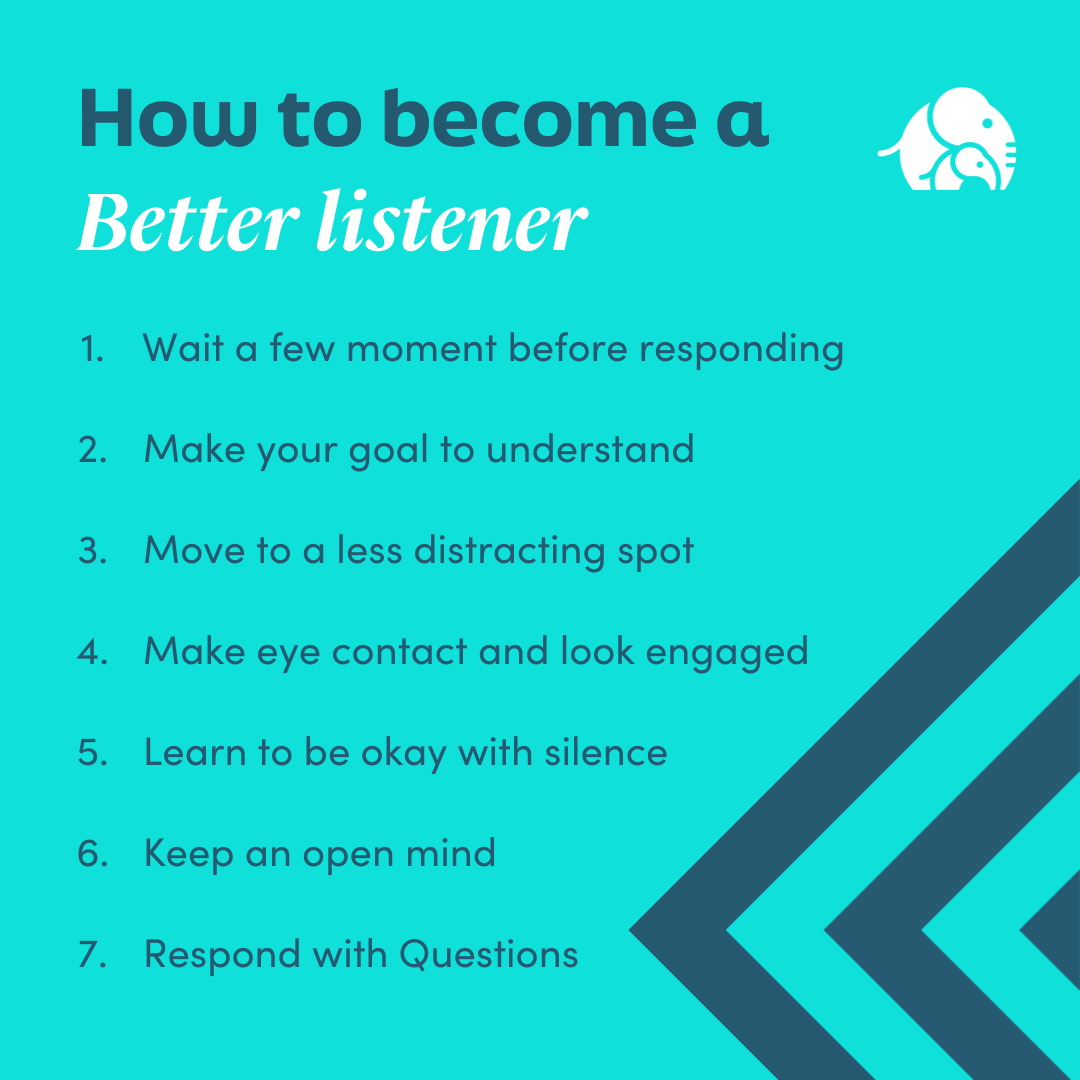Someone tells you they are struggling. Maybe they’re stressed about their tumultuous relationship, or maybe they’re in a funk and feeling like they’re completely worthless. How do you respond? The solution might seem clear to you.
“Of course, you’re stressed. Your boyfriend is a major *expletive of your choice here* and you should definitely dump him.”
“You need to stop talking about yourself that way. If only you changed your mindset, you wouldn’t think you’re a good-for-nothing *beeping beep beep*.”
Oftentimes, however, your friend isn’t looking for a textbook answer to how they can deal with their problems. Sometimes, in spite of the solutions being laid out, what they really want (and desperately need) is someone who will truly listen with compassion – without making them feel ashamed.
If your friend is struggling with a bad relationship or self-hate and you invalidate them, the reality is that the next time they’re feeling sucky, they’re probably more likely to feel that their emotions are “bad” and bottle them up or struggle through them alone.
Here is an overview of why emotional validation is important and tops on how to validate someone’s feelings, become a better listener, and be the friend your pal, partner, co-worker, or family member needs during this tough time.
Want support in becoming a better friend and healthier human? Get started with Ellie Mental Health to find a qualified therapist near you.
Why People Need Emotional Validation
We all get wrapped up in our own minds sometimes. And even in our darkest moments, at the end of the day, we all want to feel accepted. When we react with extreme or negative emotions, it’s easy to feel ashamed or even guilty for our response.
We might tell ourselves that we’re “overreacting” or question if we have the right to feel upset about the situation in the first place. We might fear judgment, disapproval, and criticism from others and choose to deal with our problems alone instead of burdening someone else with how we feel.
However, the issue is that we don’t always know how to handle difficult emotions in a healthy way, and we aren’t always very nice to ourselves. Not only can sharing how you feel with someone else open the door to new perspectives and solutions, but venting also allows us to process our emotions out loud and relieve built-up stress.
Research suggests that there are physical changes that happen in our brains when we label our emotional experiences. One study by UCLA found that when people would talk about an experience and put words to how they felt about it, there was a diminished response from the amygdala (which is a part of your brain that helps process emotions – especially fear and anger).
Ultimately, once we get the courage to be vulnerable and share our emotions, how others respond can have a serious impact on how we cope with that current situation and deal with difficult emotions in the future.
If someone responds with emotional validation, or by accepting and understanding how we feel, it becomes that much easier to turn off the voices that tell us we should be ashamed for feeling bad. Our relationship with that person deepens, we feel a flood of relief at being accepted, our negative emotions subside, and we are in a more stable spot where we can accept advice and begin to heal. And when we experience difficult moments in the future, we are much more likely to open up and turn to others in our time of need, instead of internalizing the issue and trying to cope with it on our own.
Validating Vs. Fixing Emotions
But what about when you’re the person at the other end of the conversation? When it’s your friend who is in a bad spot and needs to vent?
Being the “Fixer”
For many of us, our natural inclination is to attempt to pull our friends out of the muck and make them feel better. We often think we have the answers and that if our loved ones would only follow our advice, they wouldn’t feel so bad. Our attempts to “fix” our struggling companion often come from a place of compassion and care. We’re not actively trying to invalidate their emotions or cause further harm – we only want to rescue our loved ones from their pain.
Learning to Accept and Understand
What your friend really needs at that moment is to feel understood and accepted. They need to know they’re not crazy or pathetic for feeling the way they do. Rather than send the message, “Your emotions are bad, and we need to fix them,” with validation we communicate, “Your emotions are valid, and you aren’t wrong for how you feel right now.”
It’s okay if you don’t agree with how they handled the situation or their thoughts on the matter – you’re not validating their choices or their opinions. Rather, you are choosing to withhold your opinions at this time and provide emotional support.
How To Become a Better Listener

So how can you be a good friend and validate someone’s feelings instead of fixing them? First, focus on talking less and listening more. The goal is to allow your friend to express how they’re feeling – and to avoid interrupting them or dominating the conversation with solutions. By taking an active listening approach, you are much more likely to provide the support and compassion they need.
1. Avoid Interruptions
Don’t forget that venting is hard and it can be painstaking to find the right words to express how we’re feeling inside. If your loved one is struggling to describe how they feel or is giving long-winded explanations, avoid jumping in to finish their statement or interjecting your thoughts. Even small statements can be frustrating or cause them to lose their train of thought. Before responding, ensure they are actually done talking and wait a few moments before speaking.
2. Wait to Formulate Your Response
If you’re thinking about your response the entire time your friend is speaking, you’re not really listening. Rather than taking in bits and pieces of what they say while you attempt to formulate a quick response, try to focus fully on what they are saying. Make your goal to truly understand what they are saying – not to come back with a moving response or a solution. You can always take a few moments after they’re done speaking to respond.
3. Remove All Distractions
A good listener is always fully invested in the conversation. This means your phone should be put away and silenced, you shouldn’t be glancing at the TV, and you should move to a new location if your environment is too distracting. Resist the urge to move, clean, or do anything while they speak. Humans aren’t always the great multi-taskers that we’d like to think we are, and being distracted sends a clear message that you don’t care about the conversation and aren’t focused on listening.
4. Check Your Posture and Facial Expressions
Your body language and facial expressions communicate just as much as your words do. Be intentional about your posture, and try to look engaged. Sit up straight, look the speaker in the eyes, and avoid fidgeting. You might feel uncomfortable during the conversation, but you should attempt to look and feel relaxed as you focus on what they are saying.
5. Learn to Be Okay With Silences
Many people think silence is awkward and will attempt to fill in the empty spaces of conversation with whatever comes to mind. However, a lot of good can come from silence. Take these quiet moments to reflect on what was said and to come up with a thoughtful, validating response.
6. Remove All Judgments or Agendas
Judgment and pre-existing agendas will muddy your ability to truly understand your loved one. Maybe you think your friend needs therapy or that they should leave a toxic relationship. Rather than listening and validating, you might find yourself dropping subtle (or not-so-subtle) suggestions or directing the conversation so you can push your agenda on your loved one. Instead, come into the conversation with an open mind.
7. Respond With Validating Questions
Asking questions is a great way to understand a situation even more. And by asking plenty of questions, your loved one will feel validated and have more opportunity to talk and translate their feelings into words. These can include clarifying questions, such as “So what you’re saying is that you feel…?” Or these can be investigative questions that help you learn more, such as “Can you tell me more about that?” You can also ask your loved one how you can best support them during this time and what you can do to help.
17 Examples of How to Validate Someone’s Feelings (And 7 Things Not to Say)
When it comes time for you to respond, what should or shouldn’t you say to validate your loved one’s feelings?
You can validate someone’s emotions with responses like these:
- “I can see how upset this makes you feel.”
- “I can see that this is important to you.”
- “Please know I’m here for you.”
- “I’m so sorry to hear that happened to you.”
- “Thank you for sharing this with me.”
- “I understand how that could make you upset. I would feel the exact same way.”
- “It sounds like you were really hurt by this.”
- “What a stressful situation.”
- “I hear what you’re saying.”
- “I’m here for you.”
- “This must be so difficult to cope with.”
- “How can I help?”
- “So you’re saying that you feel…?”
- “What can I do to support you?
- “Why do you think you are feeling this way?”
- “Would you like my advice, or do you just need me to listen?
- “I’m trying to understand. Can you explain more?”
- “How do you feel about what happened?”
Alternatively, you generally want to avoid invalidating statements like these:
- Labeling the person’s actions as right or wrong: “You did the right thing.” Or “You did the wrong thing.”
- Tell them they are being overly emotional: “You can be so sensitive/dramatic/emotional.” Or “You need to calm down.”
- Make it about yourself: “This reminds me of the time that I got fired. Remember how rude my old boss was?”
- Try to make them think about the positives: “You should feel lucky/blessed/fortunate that you have a family that cares about you.”
- Make general statements about life: “Life’s not fair.”
- Point out what they could have done differently: “If you had only listened to my advice before.” Or “If you had only dumped him the first time he cheated on you…”
- Play the devil’s advocate: “Have you ever considered that maybe they were just having a bad day?”
Providing Support in a Healthy and Helpful Way
Being there for a friend in need can be difficult – especially if your loved one is dealing with some heavy, painful stuff. The good news is that you don’t need to have all the answers to be an amazing friend! The reality is that we can’t just snap away pain and suffering. Healing takes time and work, and the first step to getting help and feeling better is accepting the situation and how we feel about it.
By taking the time to listen and show that you care, you’ve shown your loved one that they have someone they can count on when times are tough. By validating their emotions, you’ve helped them take one step closer to accepting their own feelings — and your care and understanding will show them that they’re not alone.
Life is hard, and we could all use a helping hand sometimes. Find an Ellie location near you and start healing – in-person or online.


